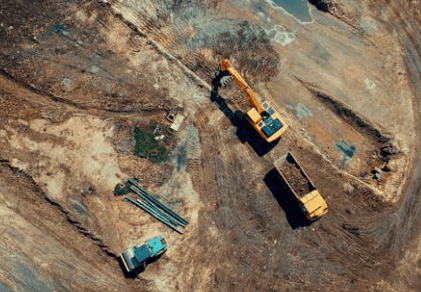Impact fees are a crucial yet often misunderstood aspect of land development. If you’re asking, “What are impact fees on land?” they are upfront charges placed on new development projects by local governments. These fees help fund essential public infrastructure like roads, schools, and utilities, ensuring communities can handle increased population demands. Interestingly, many communities use impact fees to make development projects “pay their way,” reducing the financial strain on other taxpayers. However, these fees can significantly raise costs for home builders and buyers, potentially impacting housing affordability. If you’re still wondering, “What are impact fees on land?” know that they are applied at key project stages like permit approval to manage the impact of growth efficiently. For a deeper understanding of how these fees might affect your land or property sale, connect with Steve Daria and Joleigh. These seasoned real estate investors and cash land buyers bring expertise to every transaction, ensuring clarity and confidence. Don’t hesitate—book a free discussion with Steve and Joleigh today to gain valuable insights and make informed decisions about your land investments!
Key Points
- Purpose of Impact Fees: Impact fees are charges made by local governments to ensure that new developments contribute to the cost of public infrastructure. This includes funding for roads, parks, schools, and utilities so the community can grow sustainably.
- How Impact Fees Are Applied: These fees are typically applied upfront during the development process, such as when a building permit is issued or approval for a project is granted. They ensure that new projects pay their share of increased public service demand costs.
- Benefits of Impact Fees: Impact fees help reduce the financial burden on existing taxpayers as they make new developments “pay their way.” This approach allows communities to balance growth while maintaining adequate public services for everyone.
- Potential Drawbacks of Impact Fees: While impact fees help fund necessary infrastructure, they can lead to higher developer costs. These increased expenses often get passed on to homebuyers or renters, which could make housing less affordable.
- Effect on Housing Affordability: The added costs from impact fees may raise home prices and rental rates, potentially making housing harder to afford for some families. Communities must carefully balance the use of these fees to support infrastructure without creating barriers to affordable housing.
What are impact fees on land, and why are they important?
Impact fees are charges that local governments collect from developers or land buyers to fund the public infrastructure needed for new developments.
They are designed to ensure that the costs of building roads, parks, schools, and other essential services are shared fairly.
Without these fees, existing residents might end up paying for the increased demand caused by new developments.

If you’re wondering, “What are impact fees on land?” it’s helpful to know that they are an important tool for keeping communities functional and livable as they grow.
These fees are calculated based on factors like the size and location of a project and the amount of strain it will put on public resources.
While they add to the development cost, they also protect local governments from financial burdens and ensure that communities can keep pace with growth.
By funding vital improvements, impact fees play a key role in maintaining residents’ high quality of life.
They strike a balance between promoting growth and ensuring that developments are sustainable.
Get Started: Get Your Cash Offer Below…
We are direct land buyers. There are no commissions or fees and no obligation whatsoever. Start below by sharing where your property is and where we can send your offer…
Where are impact fees applied?
Impact fees are typically applied in areas where new development will increase the demand for public services and infrastructure.
These fees are charged for residential, commercial, and industrial projects to help cover the costs of necessities like roads, schools, water systems, and parks.
For instance, a residential development might require new schools to serve families moving in, while a commercial project could require road improvements to handle heavier traffic.
Governments ensure that these fees are distributed fairly across projects to match their specific impacts on the community.
If you’ve asked, “What are impact fees on land?” it’s important to know they play a vital role in ensuring that growth does not overwhelm local resources.
Impact fees allow communities to expand sustainably by sharing the costs of essential upgrades between governments and developers.
Without these fees, taxpayers could face higher financial burdens to fund infrastructure needed for new growth.
Overall, impact fees help balance economic development with long-term community needs.
How do impact fees affect property developers?
- Increase in Project Costs: One of the most direct effects of impact fees is the increase in overall project costs. Developers must factor these fees into their budgets, sometimes making projects more expensive than initially planned.
- Influence on Profit Margins: Impact fees can reduce profit margins for developers, especially on smaller projects. This is because the fees are a mandatory expense that can’t easily be passed on to buyers without affecting the final price or demand.
- Affects Project Planning: These fees encourage developers to plan their projects carefully to minimize costs. Developers may choose locations or designs that reduce the expected strain on public infrastructure to lower the fees potentially.
- Challenges for Affordable Housing: Impact fees can be a significant hurdle for projects focused on affordable housing. The added costs may make it harder to maintain affordability while meeting all development requirements.
- Benefits from Enhanced Infrastructure: On a positive note, impact fees often fund infrastructure improvements directly benefiting developers. Better roads, schools, and public amenities in the area can increase property values and attract more potential buyers.

Do impact fees impact housing prices?
Impact fees can have a direct impact on housing prices because they add to the overall cost of development.
Developers often pass these costs on to homebuyers to maintain their profit margins, which means new homes in areas with high impact fees may cost more.
If you’re asking, “What are impact fees on land?” it’s helpful to know that these fees are meant to ensure proper infrastructure for growing communities, but they can affect affordability.
Higher fees can make it harder for first-time buyers or people looking for affordable housing to find suitable options.
However, the impact on prices also depends on market demand. If there’s strong demand, developers may absorb some of the fees to stay competitive.
On the flip side, lower demand could lead to higher prices, as developers try to recover their costs.
While impact fees aim to benefit the community by funding improvements like better roads and public spaces, they can create challenges for housing affordability.
Balancing these fees fairly is an ongoing issue for many local governments and developers.
How can I find out the amount of impact fees in my area?
- Check Your Local Government’s Website: Most local government websites have a section dedicated to development or zoning fees. By searching for “impact fees” alongside your location, you can easily locate information about the amounts and learn more about “What are impact fees on land?”
- Contact the Planning or Zoning Department: The local planning or zoning department is a reliable source for accurate details about impact fees. Their staff can provide a fee breakdown and explain “What are impact fees on land?” as well as how they might apply to your specific development or property plans.
- Review Your City or County Ordinances: City or county ordinances often include the rules and structure for calculating impact fees. While reading them may seem technical, they can help you understand “What are impact fees on land?” and how local governments determine the costs.
- Work with a Real Estate Agent or Developer: Real estate agents or experienced developers often deal with impact fees. They can guide you on what to expect and help you understand how impact fees on land might influence your project costs and decisions.
- Attend Public Meetings or Workshops: Local governments frequently host public meetings to discuss community developments and fee updates. These sessions are a great way to learn about “What are impact fees on land?” while staying informed about any upcoming changes that might impact you.
Who can help me understand and manage impact fees on land?
Understanding and managing impact fees on land can feel overwhelming, especially if you’re new to the process.
These fees are charges that developers or property owners pay to fund infrastructure improvements needed due to new developments.
If you’re asking, “What are impact fees on land?” they are essentially a way to ensure that growing communities have adequate roads, utilities, and public services.
To make things easier, working with experts like Steve Daria and Joleigh can be a game-changer.
Both are experienced real estate investors and seasoned cash buyers of land.
They have the knowledge to guide you through the complexities of impact fees and how they may affect your property.
Whether you plan to develop or sell land, their expertise can help you make sound choices and save on costs.
Don’t hesitate to reach out to Steve and Joleigh for personalized advice and support with your land-related needs.
They’re here to answer your questions and turn challenges into opportunities.
**NOTICE: Please note that the content presented in this post is intended solely for informational and educational purposes. It should not be construed as legal or financial advice or relied upon as a replacement for consultation with a qualified attorney or CPA. For specific guidance on legal or financial matters, readers are encouraged to seek professional assistance from an attorney, CPA, or other appropriate professional regarding the subject matter.
